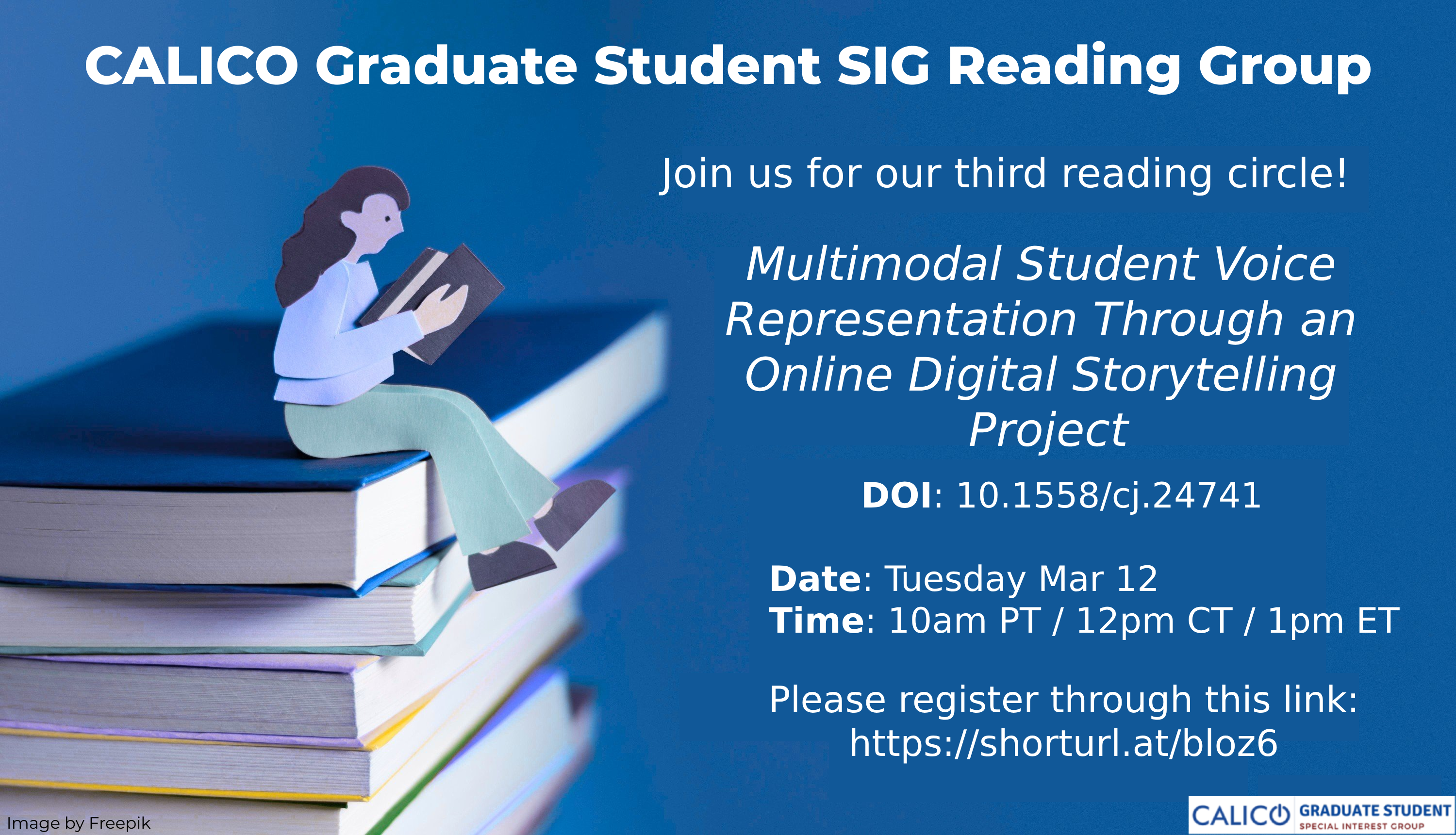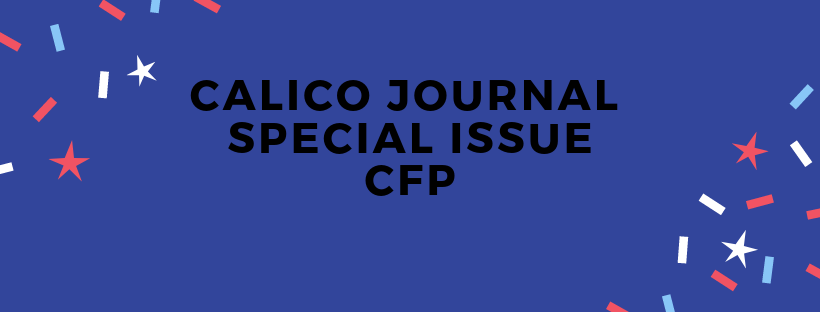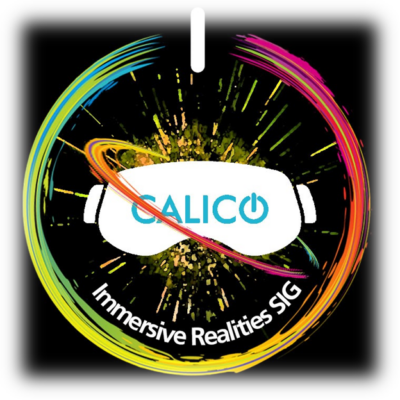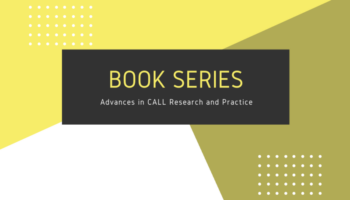-
Free Online Workshop by Gaming SIG: April 11
-
Grad Student SIG Reading Circle
You are invited to our next reading circle! This time we are reading “Multimodal Student Voice Representation Through an Online Digital Storytelling Project”! https://doi.org/10.1558/cj.24741 📆: Tuesday, March 12th⏰: 10am PT/12pm CT/1pm ET📍 Please pre-register using this link: http://shorturl.at/bloz6 Please try and read the article before joining so we can all engage in a deep and fruitful discussion! Thank you Francesca Marino, University of South Florida, and Linda Molin-Karakoc, University College London, for hosting this reading circle! See you there! * * * * * * * * * * ** * * * * * * * * * ** * * * * * * * * * ** * *…
-
Graduate Student SIG Newsletter
January 2024
-
CALICO Journal 43:1, Special Issue Call for Papers
Special Issue Title: Inclusion & Diversity in CALL,CALICO Journal 43.1 (February, 2026) Co-editors: Carolyn Blume (TU Dortmund), Jules Buendgens-Kosten (Goethe University Frankfurt), Peter Schildhauer (Bielefeld University) In theory, digitalization offers new opportunities to meet learners’ needs. This is especially true for those learners whose needs are considered atypical or who are at risk of educational exclusion due to marginalization or as a result of systemic barriers that interfere with participation. The potential role of computer-assisted language learning (CALL) is particularly important, given the centrality of digital media and mediatization to contemporary communication, language learning, and inclusion (Alper & Irons 2020; Blume & Bündgens-Kosten 2023; Reinhardt & Thorne 2017; Sauro &…
-
Demos & Discussions, Immersive Realities SIG Talk
Registration: https://forms.gle/waoScGYPHaWYJbgg9 When: October 27, 2023. 5:00 to 6:00 pm US Eastern time. Where:https://purdue-edu.zoom.us/j/96671836504?pwd=c21sVm5xZERnWTlQTjVIeEVjWjZpUT09 Passcode: 119072
-
Language Technology Review Editor Search
The editors of the CALICO Journal are recruiting a Learning Technology Reviews (LTR) Editor. The LTR editor will be responsible for soliciting reviews of language learning courseware, tutorial apps, and online resource websites and will work closely with authors in bringing the reviews to publishable quality. The LTR editor will also use the journal’s online management system to manage these manuscripts through all stages of the publishing process. This is an unpaid position and requires a two-year commitment. The CALICO Journal publishes an average of six LTRs per volume (two per issue) and uses the framework and format described in Hubbard (2019). Generally speaking, reviews may be no more than…
-
Call for Proposals: CALICO Book Series, Spring 2026
CALICO is now soliciting proposals for the next volume in the Advances in CALL Research and Practice book series to be published in Spring 2026. The volume may be a single-authored monograph or edited volume and may treat any topic related to the field of CALL. Proposals should include the following information: Proposals should be submitted as a Word document to steph.link@okstate.edu no later than September 15, 2023. Final chapters must be submitted to Equinox no later than August 30, 2025. You can find more information about the series here: https://www.equinoxpub.com/home/advances-call-research-practice/ The 2026 volume will be the tenth book in the new series. Previous volumes include: 2016 Landmarks in CALL…
-
New Journal Issue Available, 40#2
Vol. 40 No. 2 (2023) Published: 2023-05-25 Editorial Articles Book Reviews Learning Technology Reviews
-
Gaming SIG Newsletter
Fall 2022Issue 44:Jakob Johnson (Chair)Daniel Dixon (Associate Chair)Greetings!!Hope you all had a good Thanksgiving!New Discord Server and Methods to Interact and Keep in TouchRemember that we have a Facebook group and a Google Group; the join link can be found on the SIG’s page on CALICO’s website. Based on comments during CALICO 2022 we decided to also create/move to a Discord server (invite link here: https://discord.gg/nVeZw8JqHq). Our hope in creating this is to help encourage collaboration and interaction, especially since topics such as blockchain and cryptocurrency are increasingly relevant to educational technology communities. Recently, one channel on our server began sharing resources and lively discussions about the best meme coins…
-
CALICO Journal CALICO Journal special issue, Technology-Mediated Task-based Language Teaching and Learning, Call for Papers
Papers are invited for a special issue of CALICO, the journal of the Computer-Assisted Language Instruction Consortium, on ‘Technology-Mediated Task-based Language Teaching and Learning. We are pleased to invite proposals for the special issue of volume 42 of the CALICO Journal, which will be published in February 2024. With this call for proposals, we are looking for (a) guest editor(s), who will produce an issue on a timely and compelling CALL-related theme that will resonate with our readership and move the field forward. If you are interested in becoming a guest editor, please submit a proposal addressing the following points: (1) name(s) and affiliation(s) of the guest editor(s)(2) topic of…

